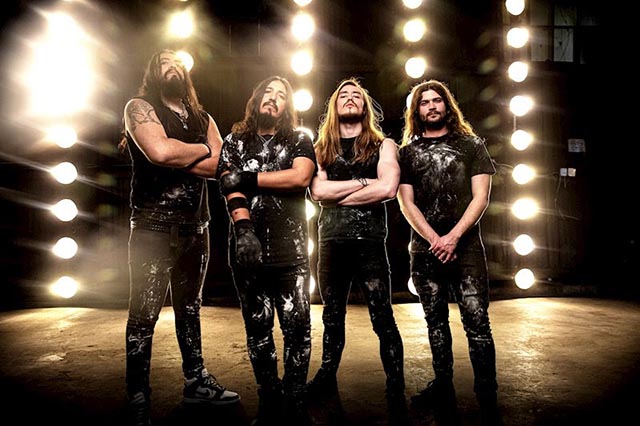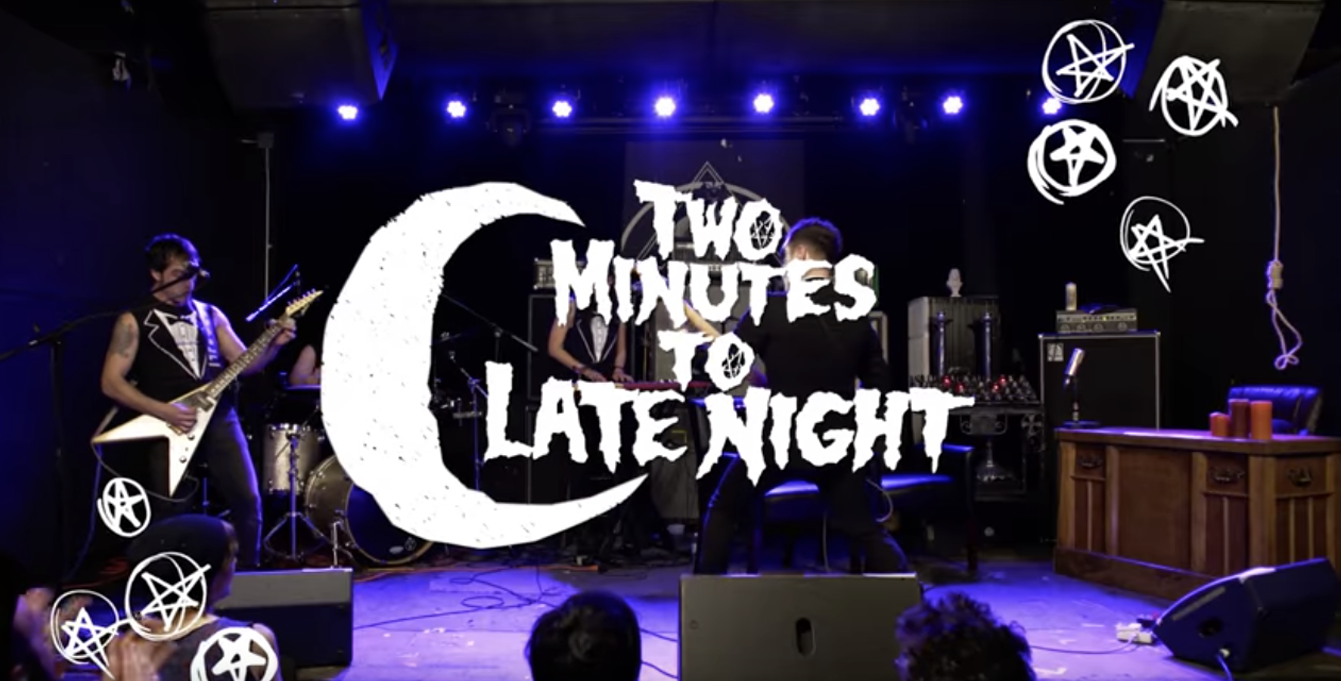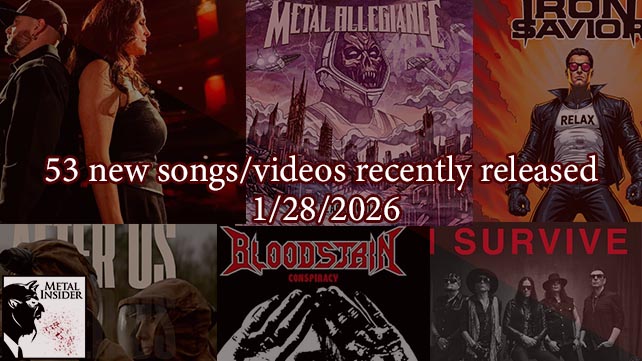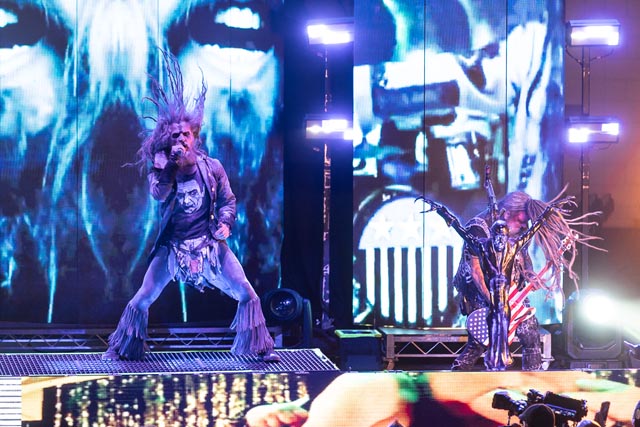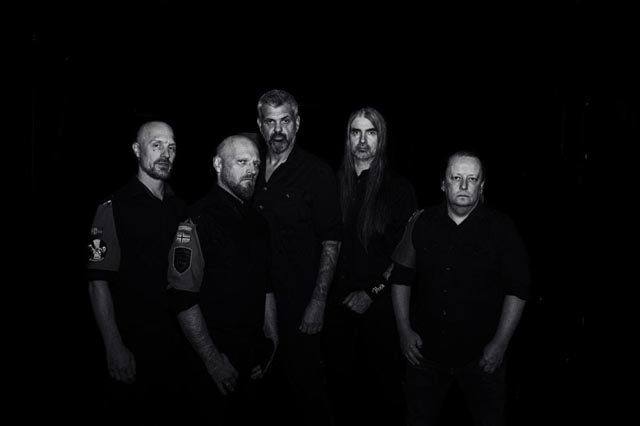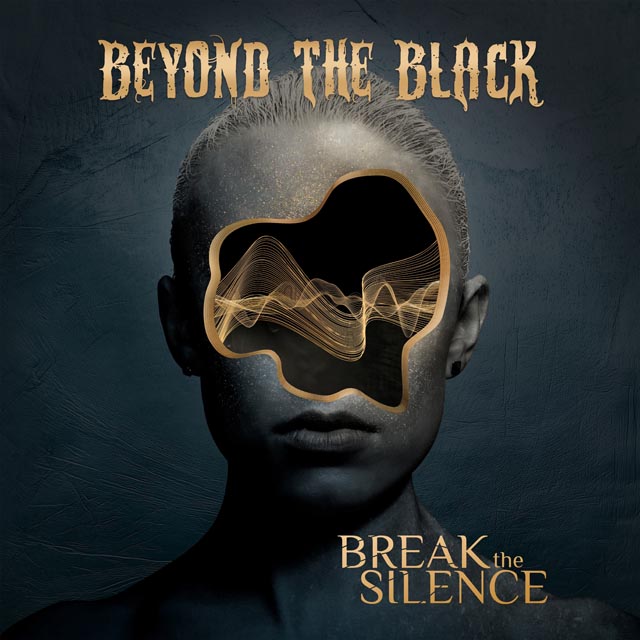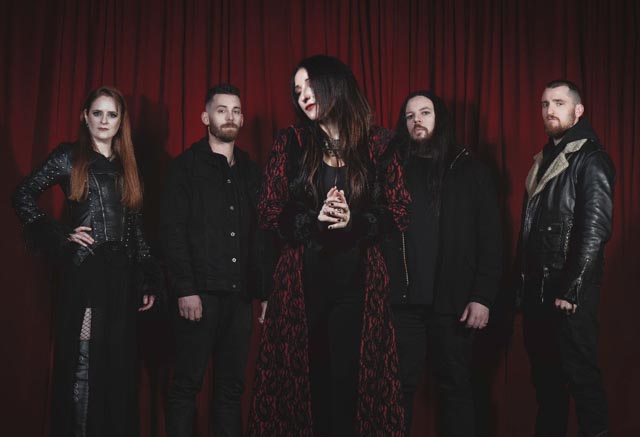
photo credit: Naomi Baker
Suldusk’s sophomore album, Anthesis, is a beautiful and complicated masterclass in blending styles. The band incorporates elements of folk, black metal, post-rock, and so forth into their dark art. Suldusk’s individualistic music intoxicates listeners and ultimately proves oddly soothing. Suldusk began as the one-woman project of Australia’s Emily Highfield, a vocalist and instrumentalist with a unique charm and charisma. Emily has since chosen to surround herself with a steady lineup.
We were lucky enough to have the opportunity to speak with Emily before the March 1 release of Anthesis. Please enjoy our discussion about the album as well as Emily’s journey as a performer.
Congratulations on the upcoming premiere of Anthesis. Could you please tell me a bit about the creative process in terms of composing the music and lyrics?
For music, the process is to noodle around on the guitar, see what reveals itself, and then build from there. There has to be something about the progression that moves me, makes me want to stay in that space for a bit. Lyrically, there has to be authenticity, a place of truth. I am a literal person in real life, but through music and art, I like to use moods that evoke imagery or words that are powerful and emotive. I use nature a lot as a metaphor. So, yeah, that’s the process in a nutshell.
What was the most difficult aspect of creating this album for you?
I think going through very extreme personal changes with a lot of the people in my life and also having like the world’s longest lockdown here in Melbourne. We were pretty much locked up for two years and live shows had stopped. The project was gaining momentum at that point. We were doing a lot of international support, talking about going oversees, and then everything sort of stopped. So, the focus was on creating while all of this chaos was happening. That’s the backstory behind how the album unfolded.
Because I’ve been working with two co-composers, it was a lot easier. They were pushing things along as well.
Could you please tell me about collaborating with the rest of the band?
I really wanted to elevate the project. The first album was just myself and session musicians. This one was more about giving them — the two co-composers, Josh Taylor and Shane Mulholland — space to do their thing and express themselves. In all honesty, at the start, it was a little bit difficult because you’re there to serve the song, and you’re there to serve the music. Sometimes, we’d be competing, you know: “We should go in this direction!”
There would be a little bit of ego. When that was happening, we just kind of went: “No, that’s so not who we are.” We need to look at how to make this the best it can be. Whenever you have people, you have some tension, and that can be a very good thing. So, that’s how it was, but overall it’s a blessing. Overall, it’s absolutely amazing because they have their strengths that we were able to utilize.
The two special guests are Raphael Weinroth-Browne and Rachelle Harvey. At what point did you decide to involve them?
Most of the cello, we wrote with MIDI. We just wanted to have humans perform as much as possible throughout the album. Rachelle is a cellist that I’ve worked with on and off. She’s a fantastic improv player, and I said: “Would you like to be a part of the album?” She came in, did her thing, and gave it a humanity, which was really pleasing.
And Raphael, we saw on Instagram. We just went: “This guy’s a beast. He’s an incredible cellist. He’s been playing for Leprous. Let’s see if we can write some very complex cello lines and see if he can do it.” We threw the challenge to him, and he blew us away. He was incredible. So, yeah, I’m absolutely stoked to have them both helping out.
Your style has been referred to as dark folk/blackgaze, but it really can’t be described because it’s so unique and has so many different elements. So, I was wondering what is the most unexpected influence that you have on the album?
I think what really crept in was prog because of Josh and Shane. Shane is a massive Porcupine Tree fan, and he really wanted to push things in an unexpected direction. I was more than fine with that. So, I think prog was kind of the direction. And both of those guys have worked with tech death metal. It’s in there, the more technical side of things. Josh’s acoustic playing is very intricate. He’s definitely very involved. So, that was another influence that sort of crept in there. It’s not as overt, but there’s a lot of stuff in there because we’re all such different passionate individuals, but we all bring what we can to it.
Was it at all challenging to find the perfect balance, which you did, between beauty and brutality, even though the record is more on the beautiful end?
Thank you so much. I think it’s a needed balance. The music that I enjoy can’t be too much of one thing. I like a dynamic project that can cover a bit more territory. To me, Opeth and Agalloch are really interesting. Chelsae Wolfe is an amazing artist. She can be so intimate and also so gloomy. I love when I see artists delving deeper into different emotions.
Anthesis was mastered by Thomas “Plec” Johannson, who has worked with Katatonia. On February 10, you played a gig with Katatonia. How did that go? It looks like it went really-really well!
Thank you. It went really well. It was so much fun, but it was also daunting. We had a couple of technical issues. I’m not a great public speaker, but I thought: “Well, Mikael Åkerfeldt speaks really well.” When I’ve been to Opeth shows, he really engages with people. He’s said in interviews that it calms him down. I thought: “That’s the approach that I’m going to use.”
The band was amazing. I had a moment to be able to introduce them while we were sorting out the technical stuff. It was really nice to be able to introduce them as individuals because up until recently the project was just me. It’s now a full band. It’s not the Emily Highfield show. It’s all of us. We’re all Suldusk. So, that was a really positive experience.
Do you have any touring plans right now?
We’re talking with booking agents at the moment. We really want to take the music around to Europe. America is a dream, but there are a lot more obstacles. For a band Down Under to venture over, there’s visa issues and other such things. We’re going to try to make it happen.
We’re just halfway through the third album. We’re writing it now. Now, there’s a process that we’ve already been through, and it’s a lot more fluid. We would like to tour, record the new album, and just engage as much as we can.
I’m curious to hear more about the new content.
I think the live shows we’ve been doing have really been driving the content to be just a little bit smoother. A lot of the stuff that has been written is very intricate. When you’re performing it, you don’t want to be too stressed and focusing on: “Yeah, I don’t want to mess it up.
I wanna make sure everything’s okay.” You wanna be giving energy all around. I think the way it’s unfolding, there’s a little bit more headbanging. But there’s always going to be the intricate aspect of the music.
There have to be some moments, and that’s what we found with “Anthesis,” the title track. When we performed it as Katatonia’s support, there’s a moment that brings people in and hopefully lifts them. I definitely felt that while performing it. I hope that the material that we’re writing now is a little bit more in that vein.
You inked with Napalm Records in 2023. How has it been working with them so far?
They’re really great. It’s been fantastic. I’ve gone from a little label in Germany called Northern Silence Productions, who was amazing. It’s a one-man operation with a lot of artists on the roster.
Napalm has their assistants, so it’s been great. They’re great communicators, and they’re really efficient. I think they’re fantastic! It’s still quite surreal to think I started Suldusk after giving up music for such a long time. “No, I’m just gonna have a normie life. It didn’t work.” I started uploading stuff on SoundCloud, and I realized that people like gloomy stuff, acoustic stuff.
I’ve gone from that, my own kind of therapy, to being signed by such a respected and big label and working with them and having a project manager. Napalm helps with social media, PR, and organizing things. It’s just been incredible. I still kind of go: “How did this happen?!” It’s brilliant.
That’s great! Obviously, you have such an incredible voice. So, I was wondering if you could please tell me a little bit about your journey as a vocalist.
I was picked as a little kid to be in a choir. I think that euphoric state of experiencing three-part harmonies is what I’ve been trying to capture ever since — it’s that frequency and being in that place, just music that takes you somewhere. Music was always frowned upon in my family.
The more people told me not to do stuff, the more I wanted to do it. I always kept it going. It was my secret world. Yeah, I was in bands in my twenties, but it was all really ego-driven. I couldn’t shake it. So, I always sang for my own mental and emotional health. It was always my private thing.
And then, when I started uploading stuff on SoundCloud and really started recording my voice, doing harmonies with myself, and hearing my little world, people seemed to like it. I was shocked. People said: “Have you heard of Marissa Nadler? Have you heard of Chelsae Wolfe?” I went: “Who is that?” They said: “Have a listen.” I went: “Oh my God. People like gloomy stuff like mine. These are my people.”
That encouraged me to keep going. Then I discovered Agalloch. I always loved metal. I just went: “This is exactly the direction that I feel I can explore.” And that’s kind of how it happened.
My goal was always acoustic. I just gravitate so much to the voice and acoustic. That’s why I admire Chelsea Wolfe so much. It can just be her and her guitar, and it’s extremely powerful. What did they say: “Bob Dylan was three chords and the truth!”? If you can encapsulate that in your music, you can then build as much as you want and where you want to build it. For me, that has been the driver.
And vocally, doing harsh stuff, doing the fry vocals and the more projected growls live, is kind of like another form of expression. It’s like another instrument you need to use effectively to convey the dynamic that you want to express. I had to push myself. With the first album, the producer was like: “Why are you doing that?” We had a little bit of a conflict. I did lose an acoustic guitarist, who was like: “I don’t want to be involved with the harsh side of things, the fry.”
It really kind of disturbed them. That made me go: “Oh, I must be onto something.” It made them uncomfortable to hear a woman expressing that, which was shocking to me. When I started doing it, a few people said to me: “Your music is really nice, but why do you have to scream?” I said: “It’s not for you. It’s not your cup of tea, and that’s okay.” But I think the people who get it like it because they understand where it comes from and why it’s there in the music. So, that’s been the journey.
Now, I’m pushing myself so that I can be able to be gig-ready and train my voice so that it can do the harsh and the cleans and cover the full gamut of expression that I need it to. So, that’s a whole different level.
Would you feel comfortable speaking a little bit more about how you go about training your voice these days?
I’m always doing a hell of a lot of training. Every day, I’ll do vocalizations just to get the vocal folds warmed up. It’s like going to the gym. You’re concentrating on breath control and integrating your whole body into the sound that you want to create.
With the harsh vocals, it’s about warming up and learning to do it your way. There’s no one right way of doing harsh vocals. There is a wrong way. That is to damage your chords by tensing. That’s the thing because the sound sounds like it’s tense, and that’s the effect of the sound, but the vocal folds and the neck and the muscles around can’t tense.
That’s the big misconception that people have — they tense up. You actually have to be very loose and relaxed. You have to train your brain not to do what it thinks it should but rather what is best for your whole system.
Is there anything that we didn’t cover that you would like to discuss?
I’m just really excited to finally release this album, and thank you for the opportunity to talk. Yeah, I’m just grateful to be making music and that it connects with people.
Thank you, Emily, for a great interview. I urge everyone to order their copies of Anthesis.
(Order Suldusk’s Anthesis here.)
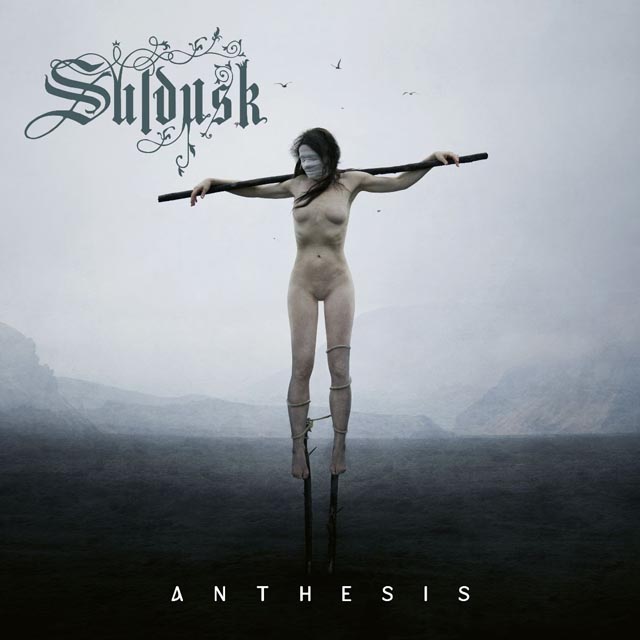

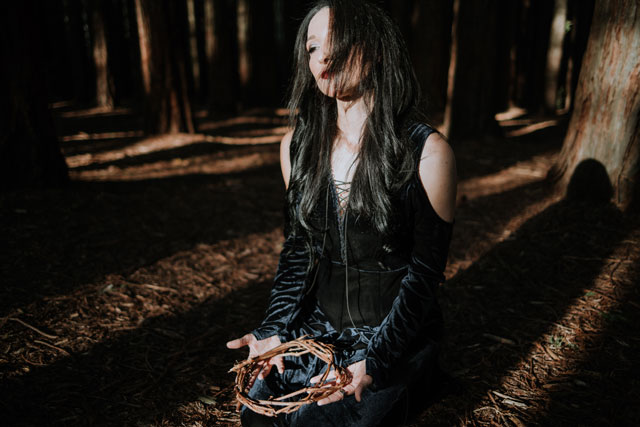

![Black Tusk bassist seriously injured in accident [UPDATE] Black Tusk bassist seriously injured in accident [UPDATE]](https://metalinsider.net/wp-content/uploads/2014/11/Screen-Shot-2014-11-08-at-2.35.51-PM-150x150.png)
